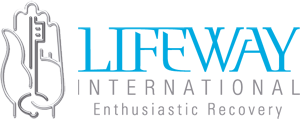
Coordination is a Must
Oftentimes a client will come for an assessment and will need to be referred out of Lifeway to a higher level of care. When the plan is to return to Lifeway upon discharge from the treatment facility, communication and coordination with the client, family, and facility treatment team throughout the course of treatment is imperative.
Proactive Family for Better Results
When a client is in an inpatient or residential setting it provides a perfect opportunity for family members to begin their own healing. Family members should attend weekly staff-led family support meetings in order to gain a better understanding of the disease, how to deal with it and best support treatment outcomes.
Skirting Short Lived Results
If a client returns home and the family system is not understanding, supportive, or healthy, any progress the recoveree made while in residential will rapidly deteriorate. Getting the family connected as soon as possible with APG meetings, a facilitator, parent coordinator, and an alumni family is key to continuing recovery momentum and setting up a client to have the best chances at success.
Optimally Supporting Care Level Transitions
An inpatient admission also provides the opportunity for rapport building between the client and the Lifeway staff. Open communication with the clinicians at the treating facility, visits with the client, and participation in discharge planning meetings are key to making that happen. Below is a sample flow that includes time frames for contacts when a client is referred to another facility for treatment. (i.e. detox, residential, or inpatient, when the plan is for the client to return to Lifeway upon discharge.)
- Staff member facilitating the referral/transfer to a higher level of care will immediately obtain a release of information form for the facility the client is being referred to as well as releases for any other involved parties including: family, parents, significant others, outpatient therapist, psychiatrist, probation/parole officer, etc.
- Staff member that is facilitating the referral/transfer will determine which staff member will be assigned to follow up with the facility, client, and family during their treatment at that facility.
- The assigned staff member will coordinate with the Parent Program Coordinator to assign an Alumni family to the family/parents/significant others of the client within 48 hours of client admission to the referred facility.
- The assigned staff member will reach out to the referred facility within 48 hours of client admission to that program.
- The staff member will coordinate with the counselor, therapist, and/or doctor to arrange the following:
- Visits with the client while they are at the facility by the assigned staff member.
- Discharge Planning session with the client, facility therapist and family at least one time during the client’s stay in the program.
- Staff member will make contact with parents/family/significant others within 48 hours of client admission to facility and will arrange at least one family session (if appropriate) to help support and educate family about Lifeway APG within 7 days of the client’s admission to the program and no later than 1 week prior to the client’s discharge.
If you believe your loved one may be in need of a higher level of care, give us a call at (713) 459-9427 and we’ll walk through the process with you every step of the way.

